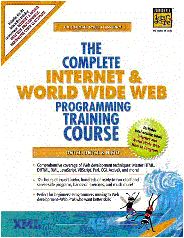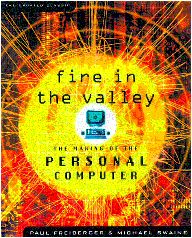
Computer Science 103 (CX 103)
Cryptography
Worksheet
The
Cryptograms
Click
here for Assignments
Click Here for Student
Web Pages
Introduction to Computers
An introduction to computers primarily for students in the humanities,
languages and social sciences who wish to learn more about how computers
are used and how they are changing our society. This course is open primarily
to First Years and Sophomores and does not count for credit towards
the computer science major. Students considering a major in computer science
or who anticipate needing strong programming skills should
start with CX121 instead.
Broad Outline
This course is logically divided into three parts each lasting roughly
four weeks. The first part introduces you to the computer related technology
you will find at Middlebury College and gives you some fluency with the
Internet and the World Wide Web (including how to create your own homepage).
In part two you will learn how to control a computer by writing your own
programs in the computer language know as "JavaScript". This will allow
you, for example, to place items on your homepage that do things when users
select them. In part 3, we will discuss the capabilities and shortcomings
of computers, introduce several topics in "artificial intelligence", and
reflect upon how computers are changing our society.
How CX 103 Differs from CX 121
Both CX 103 and CX 121 are "intro" courses without any prerequisites but
it is important to make sure you are in the right course. CX 103 is mostly
intended for students who are seeking some familiarity with computers and
computer science. Most students in CX 103 will take only one CX course
although a handful will decide to take more (CX 121 would be the course
to take next). Both courses focus upon describing computer science as an
intellectual discipline. CX 103 , however, has a broader scope covering
topics that are discussed in several courses in the computer science major.
CX 103 spends some time (about four weeks) learning about "programming"
but the emphasis is mostly on reading rather than writing programs. CX
121 is taken by students who intend to learn more about programming and
who will most likely either major or minor in Computer Science.
Professor
Mike Olinick ,
Warner 314, 443-5559; My home phone is 388-4290.
Email: molinick@middlebury.edu
Office hours: MWF 9 - 10, 11 - 1; Tuesday 1-3, Thursday 10 -
1 and by appointment
Prerequisites
None.
Class Meetings
Monday, Wednesday and Friday from 10:10 to 11:00 AM in Warner
Hemicycle
In addition,you will attend a 75 minute lab/discussion on Tuesday mornings
in Sunderland ILC 1. Meeting times are
CX 103 X : 8 - 9:15
CX 103 Y: 9:30 - 10:45
CX 103 Z: 11 - 12:15
Texts
Harvey M. Deitel, Paul J. Deitel, and Tem Nieto, The Complete
Internet & World Wide Web Programming Training Course Prentice
Hall, 2000. This book is available for sale from the College Store in Proctor.
Paul Freiberger and Michael Swaine, Fire in the Valley: The Making
of the Personal Computer, Second Edition, McGraw-Hill,
2000. Paul Freiberger is a Middlebury graduate; we hope he will be
able to visit campus this term. You may borrow a copy at no cost for the
term. Pick one up from our department Coordinator Denise Heath (Warner
209). You will need to leave a $10 deposit which will be refunded if you
return the book in good condition at the end of the term.
(For more information about these books, click on the images below:)


Web Sites
Fall 2000 Class
Pages
WWW
documentation from ITS
The Homepage for our Text
NCSA's
A Beginner's Guide to HTML
Java Tutorial
The Java Development
Kit
JavaSoft
Telnet to midd-unix
Grading
There will be two one-hour (in class) exams in this course. Exam 1 covers
the material from the first part of the course and is currently scheduled
for Tuesday, March 13 (during lab). Exam 2 will deal with part two
of our course and is scheduled for Tuesday, April 10 (also during lab).
The final exam will be cumulative and count as a double exam. One portion
of the final will be similar to your first exam, another similar to your
second exam, and the remaining portion will test you on material covered
in the last third of the course. Your final is scheduled for Tues, May
15 from 9 am to Noon.
We will have several "unannounced quizzes" during the semester. Each
will be given at the start of class and will be based upon readings from
previous classes. Their total will count as one exam.
Your final grade will be determined from the average of the five exams
(the final counts as a double exam, the quizzes as one) you will take during
the semester. Even though your homework will be graded, this will be primarily
for your benefit only. I will get a report from the grader at the end of
the semester and use it to make any final grading decisions for borderline
cases.
Late Homework Policy
Homework is considered late after it has gone to the grader. Homework will
not be accepted beyond that time.
Attendance
I will keep track of attendance during the semester.
Honor Code
The work you submit in CX103 must be the result of your own individual
effort. You may discuss how to solve homework problems with other students
but when it comes to the actual writing of programs or problem sets, your
work must be your own. You must write your own solutions without having
someone telling you what to write or copying the work of someone else.
In particular, you should never have a copy of someone else's work in your
possession, either electronically or on paper. It is also your own responsibility
to protect your work from unauthorized access by others.
Exams and quizzes, of course, must be entirely your own work.
This course will be "platform independent" in the sense that there are
versions of all of the software we will use (Netscape, Internet Explorer,
Word, Excel, ...) that run on just about any computer.


